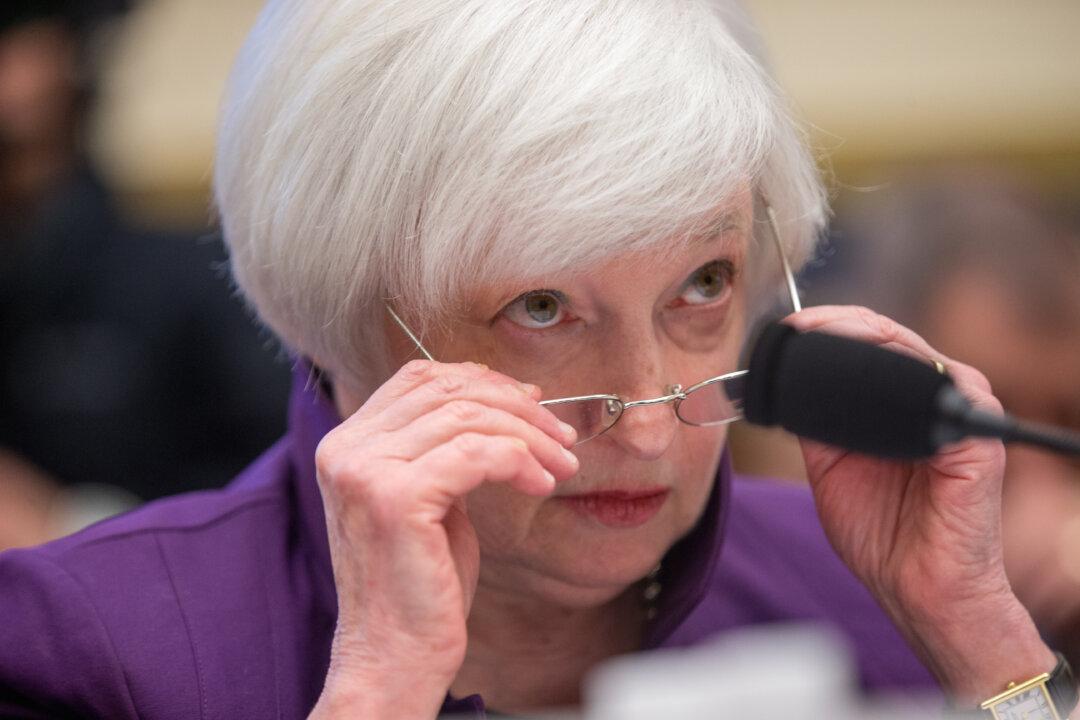The market is expecting a rate hike in December, after the Fed said it thought the economy was improving on Nov 18. Carmen Reinhart, of “This Time Is Different“ fame doesn’t think rates can rise too high though in the future.
“The idea that rates are going to normalize and we’re going to go back to 2 percent or 3 percent, real rates, I just don’t see that,” she said.
The Harvard professor wrote a paper in 2011 titled “The Liquidation of Government Debt.”
In it, she says governments loaded with debt will have trouble repaying it if interest rates rise too high too quickly.
“We have the highest levels of debt since the end of World War II. Most governments which have a lot of debt don’t like high real interest rates,” she says.
The debt to GDP ratio in the United States has risen more than 40 percentage points to 101.3 percent since 2007.






